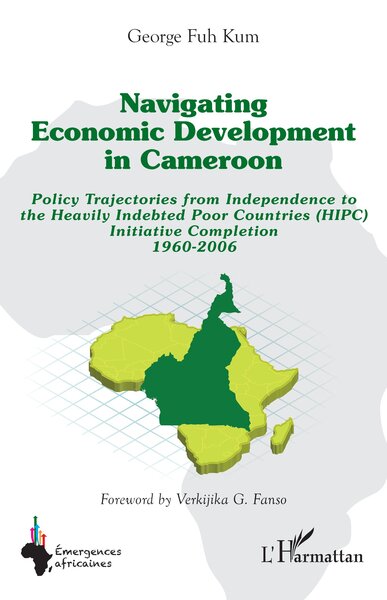- EAN13
- 9782336505381
- Éditeur
- L'Harmattan
- Date de publication
- 19 décembre 2024
- Collection
- EMERGENCES AFRI
- Nombre de pages
- 250
- Dimensions
- 24 x 15,5 x 1,4 cm
- Poids
- 380 g
- Langue
- eng
Navigating Economic Development In Cameroon, Policy Trajectories From Independence To The Heavily Indebted Poor Countries (Hipc) Initiative Completion 1960-2006
George Fuh Kum
L'Harmattan
Prix public : 27,00 €
This book is an analytical compendium of Cameroon’s economic development policies, from 1960 to 2006. It opens with the country’s colonial economic experiences and proceeds with an analysis of its initial economic development guidelines in the early 1960s, fundamentally based on development planning and planned liberalism, executed through Five Years Development Plans. Cameroon’s early development emphasis was on industrialisation, later deduced to be too costly and slow in spurring growth. Agriculture was thus endorsed in the early 1970s, as a primary strategy to boost real development in the country. It was in this backdrop that precepts like the green revolution, self-reliance development, food self-sufficiency and others were adopted. The book rounds off with the different measures implemented by the Cameroon government, Bretton Woods institutions and others, to restore and sustain the country’s economy during and after the economic crisis. It argues that while the principles underlying Cameroon’s economic development were resilient, they fell short of expected outcomes.



















